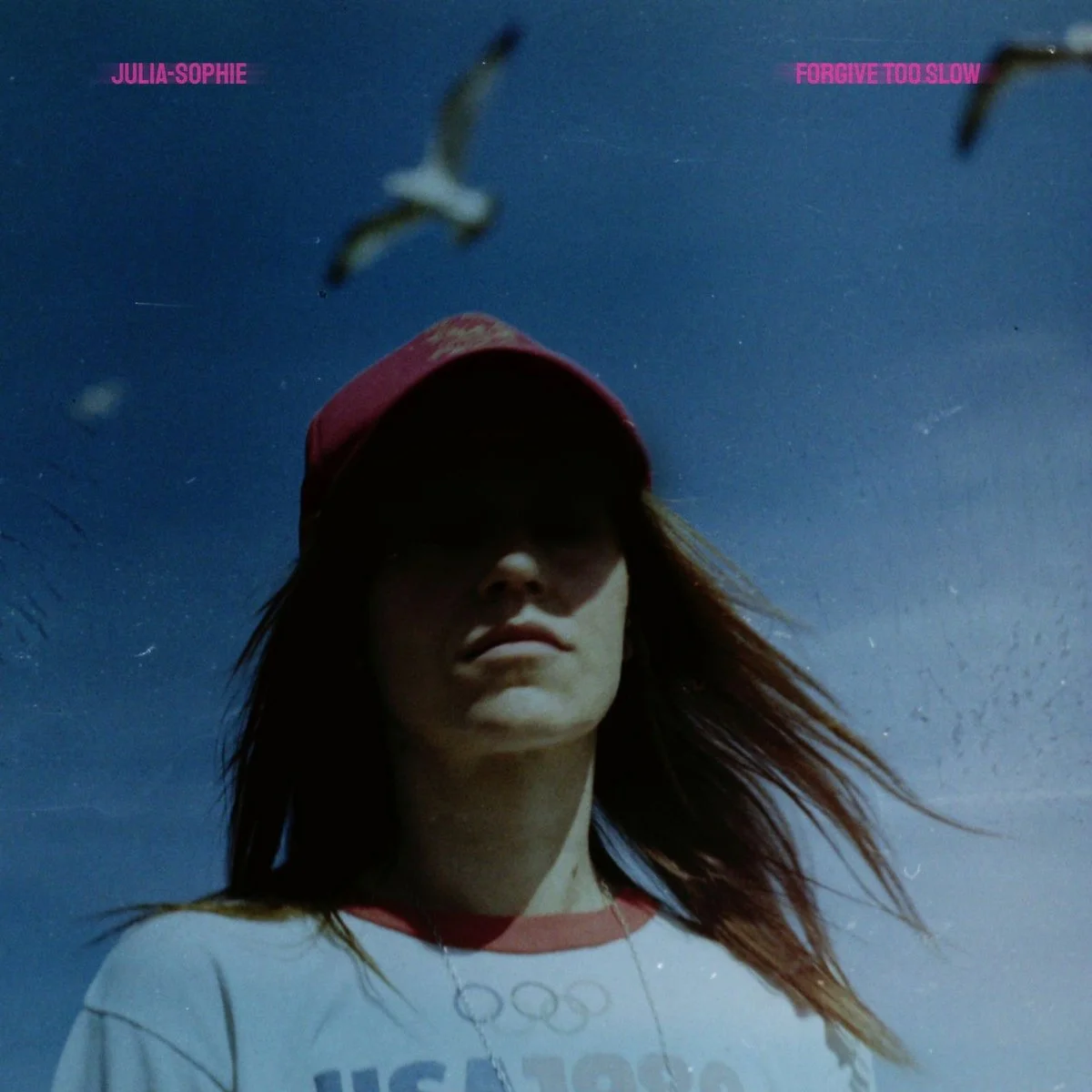julia-sophie
Throughout her music career, Anglo-French avant-garde electronic artist Julia-Sophie has repeatedly burnt everything down to the ground. Each time, she has risen from the embers transformed, forging new paths, her past casting a silhouette onto her ever-evolving creative endeavors.
forgive too slow, her deeply personal debut album is a testament to her ability to yet again transform adversity into raw beauty, combining her traditional songwriting roots with her take on experimental electronica. It features Julia-Sophie’s intimate voice backed by warm and precise electronic sounds whose free-spirited explorations give body to the carefully written personal songs. The introspective confessional lyrics explore how her experiences of trying to be true to herself have burned and thrilled but eventually broken her.
Julia-Sophie’s most notable artistic breakdown happened years ago, after signing a major label deal with her rock band, Little Fish. After years of working hard to get signed, she was left with nothing except whirlwind memories of LA life: “I didn’t care enough about being famous to survive all the sh*t that was being thrown at me,” Julia-Sophie says. “I loved playing shows and travelling around the world with rock icons like Debbie Harry and Courtney Love, but I didn’t have it in me to play the game I needed to play to really make it big – it wasn’t me.”
The surreal experiences (like being flown to Las Vegas in helicopters with a bag of slot machine money or given limousines for the day to go shopping), along with having to work in environments where she felt unsafe, drove her decision to leave the fame game. She turned down the offer to emigrate to America and engage with the machinations of the system as it did not feel “true or congruent with how I was”. Instead, she focused her attention on her hometown (Oxford, UK). “The experiences I had made me feel isolated and removed from my ‘real’ life. I needed to reconnect with myself and my sense of authenticity so I left the label, left America, and went back to my roots, reconnected with my family, my friends, and the city and community I had grown up in.”
With the freedom to make music without the pressure of lofty industry ambitions, Julia-Sophie immersed herself in the DIY scene, writing poems for magazines, organising local music events, starting a cassette label (Beanie Tapes) and forming a DIY synth-pop band with Oxford scene-sters called Candy Says. Her whole ethos changed: “Fame was not a consideration, I no longer believed it promised true happiness. I thought that getting signed to a hot shot label would make me happy, but it didn’t. I met people I wish I had never met. I would have liked to have been more protected. I experienced the negative effects fame and fortune can have on people and I didn’t want those to become values that defined me or my art.”
Julia-Sophie started recording lo-fi pop in her garage, using an old laptop, wonky microphones and hitting whatever was around for beats. Candy Says grew to be more of a collective than a band, and eventually co-wrote a film score for indie film Burn Burn Burn and recorded a cover of Running Up That Hill for the Netflix film Close (starring Noomi Rapace).
Things were once again starting to take off when life threw her another curve ball. “When you become a mother, you have to re-think everything and ask yourself how you’re going to keep little humans alive.” Feeling beaten by the unpredictability of music and in need of stability in her life, she dusted off her psychology degree and started training as a gestalt psychotherapist.
But throughout this time Julia-Sophie never stopped writing songs, and soon started recording them with her friend B, who had a studio stacked from wall-to-wall with analogue recording gear, vintage synths and drum machines. “I had been listening to a lot of James Blake and I felt inspired to make my own version of electronic music.”
A lot had changed since Julia-Sophie first walked into a studio with Little Fish. The music was now more personal than ever and it felt new and exciting. She didn’t plan to release it, but friends began to encourage her. “I never wanted to be a part of the industry again, my time in LA killed me.” She decided to self-release and the music reached audiences beyond her expectations, including support from BBC Radio 6 and a feature in The Quietus.
forgive too slow is Julia-Sophie’s debut solo album. “My journey with music has been weird and long. I think people assumed that the music I made was exactly what I intended to make, when it’s always just been me trying to figure it out. I didn’t grow up surrounded by music, I had to figure it out as I went along. Being a solo artist has now allowed me to really find myself and show who I am in all my messy states.” The album is about relationships and the struggles we go through when we “forgive too slow” and can’t break out of patterns from the past.
The songs narrate her story of self-destruction (“numb”), love (“falling”), and loss (“telephone”). By the end, embers are still burning and there is no telling if Julia-Sophie has found peace, but we do get a sense that she has gotten closer to the core of her being and is finally living authentically.

